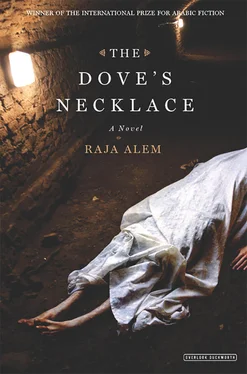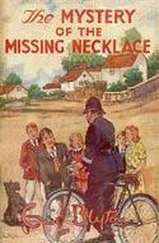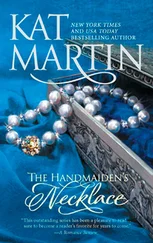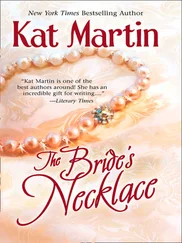Raja Alem
The Dove's Necklace
Dedicated to my grandfather Abd al-Lateef’s house
T HE BIG RED X ON THE SIDE OF THE HOUSE MEANS IT’S GOING TO BE DEMOLISHED soon. Demolished to make room for a parking garage to house those strange four-wheeled creatures that look as if they’re about to take over Mecca, just like in the stories of the apocalypse. When we were kids, the words “And gold will be strewn along the byways” seemed like the most far-fetched nonsense we’d ever heard, but with the astronomical prices people pay for the cars that are fast outnumbering the population of Mecca, gold’s being strewn right and left before our eyes. And hills are being leveled, too, disappearing just like the old buildings, one of which was my grandfather’s house. The house stood at the summit of what used to be called Sanctuary Portico, in the Istanbul neighborhood. That guileless past is gone now and it’ll never exist anywhere again, except in the pages of this book.
I’m telling this story to my great-great-grandfather Yusuf Alem of Mecca, who could make bread appear from beneath his prayer rug when he was praying in the Sanctuary, and if that seems like no big deal to us now, it’s only because sending a message from Mecca to China with the click of a button is no big deal to us now either. Yes, my ancestor was one of those people who could cross great distances in the blink of an eye.
He was a scholar who believed that traditional learning was just material passed down from one dead person to another. Death was something you could achieve easily enough, he felt, but spiritual life — well, that was something that bubbled up out of the sea of the living. That was why he shunned any kind of learning that could be passed down, and devoted himself to that knowledge which sprang forth from the sea of life and sent bread pouring out from beneath his prayer rug, whisked nations beneath his feet, and shone a light through the faces of his descendants — including my father Muhammad — which illuminated all that was unseen.
T HE ONLY THING YOU CAN KNOW FOR CERTAIN IN THIS ENTIRE BOOK IS where the body was found: the Lane of Many Heads, a narrow alley with many heads.
The first thing you should know, though, is that it’s not me who’s foolish enough to try to write about a place like the Lane of Many Heads; this is the Lane itself speaking, me and my many heads. I am that narrow alley in Mecca, off the highway where pilgrims make their ablutions and don their white robes to begin the Umrah rituals: the cleansing of the soul, washing away the past year’s sins in preparation for another year of debauchery.
I’m the Lane of Many Heads, a champion at holding my breath; it’s a title I’ve earned through my enviable skill at confronting the impossible. Since no one ever bothered to dignify me with streetlights, I’ve learned to sit in the darkness, getting high on deep drags of the stink of trash and sewage, the clamor of discordant voices, like any old forgotten backstreet. I like to hold my breath for a few minutes before I slowly let it out through my mouth in rumors and legends and whispers of forbidden things. It’s how I torment the people who live here, how I’m able to send them trawling through their history for some antidote to the unholy gloom they live with, something to protect them from the atomic age that’s about to crush them.
My story may not go as far back as the tribe of Jurhum and the Amalekites — it’s true — but I can at least say I’ve witnessed the collapse of one great kingdom and the rise of another, as well as many wars and much blood. I know enough to be able to tell the story of one of the Hijaz’s greatest valleys, al-Numan, whose name, as any dictionary will tell you, is one of many words for blood, one of the many disguises it likes to hide behind.
My name’s all right, I guess, but I probably envy Elbow Alley most of all. That’s where the Prophet’s companion Abu Bakr had his silk shop and house, or so they say. In the wall opposite the house, there’s a stone that passersby touch because they think that every time they do it, the Prophet receives a blessing. This may, in fact, be the very stone the Prophet was referring to when he said “There is a stone in Mecca that used to bless me on the nights when I received revelation.” Across from this stone, on the left as you’re approaching, there’s a slab in the wall with an elbow-shaped depression at its center, and this, too, is visited by the masses, who believe it’s where the Prophet used to rest while chatting to the adjacent stone, his sublime elbow eventually wearing a groove into the wall. People also say that any Meccan who suffers from impotence or infertility need only walk from Khadija’s house to this stone, to be blessed with all the children they could ever want.
Of course, I’d love to be the kind of street that’s the star of its own magical fable, an alley with walls that chat to passersby and respond to the touch of their fingertips. I know I can’t compete with those kinds of streets and their legends, but I’ve still got more going for me than scores of others. I like to think I’m better than Embrace-Me Way, which is so narrow that the only way two people can get down it is if they entwine their bodies like lovers; there’s not a step you could take in that alley that wouldn’t get you stoned to death. Or what about Funeral Lane, the tragic path that people only go down once? Or Mortar Alley, which likes to grind down the cheerful souls whom I actually welcome into my nooks and corners? I’m far superior, likewise, to Wretches’ Lane, with its bonfires surrounded by beggars and dervishes and other unsavory types; and to Coal (or Red) Alley, too, for that matter — the only thing it has to brag about is a single carob tree that produces bloody fruit. I’m the Lane of Many Heads; I’m better than that.
Sometimes I sit down to pray — that’s right, don’t be shocked: everything prays — and when I shut my eyes, I get carried away on a mental wave under the influence of my Tryptizol, which is prescribed for both depression (large doses) and incontinence (small doses). I take a 50 mg capsule between my fingers and open it to reveal tiny beads, which I divide into five piles. Some nights I increase the dosage, and other nights when my insides feel like they’re coming apart, I abstain completely even if it means I end up wetting the bed …
I’m the Lane of Many Heads. My name stands for an alley that’s unknown to anyone who’s known, to anyone who has the power to change my destiny, to put me on the map of Mecca, which is where I belong.
The Dress
L ANE OF MANY HEADS. WHY THE HELL HAVE I PUT UP WITH THIS OVERPOPULATED, headbutt-evoking name for so long? A long time ago, well before I came to life, the heads of four men were found buried here, beside one of the stations of pilgrimage. Please notice that I make no mention of the woman’s corpse that’s at the heart of this book, the only reason I broke my silence. No, instead I’m telling you about four heads, which were lopped off during the reign of one of Mecca’s Sharifs — maybe Sharif Awn’s — or under one of the Ottoman viceroys. These four men, you see, had taken advantage of the opportunity presented by the arrival of the new kiswa. A drape of green and red silk, the kiswa that covered the Kaaba was brought every year from Tinnis in Egypt in a great celebratory procession, and every year the Sharif and his soldiers, as well as the rest of Meccan high society, went out to meet the procession, while the attendants laid the old covering in a pile near Victory Gate, which faces Mount Marwa. They would leave it there for the Shayba clan to come collect it and take it to the jewelers’ market, where the gold and silver thread that had been used to embroider the glorious names of God onto it would be melted down. This was the Shayba clan’s annual stipend. The four men waited until the Sharif and his soldiers were out of the way, then dashed in and made off with the old covering on camelback down the pilgrimage route. When the Sharif’s soldiers finally tracked them down, they discovered that the men had pitched the covering like a tent and were receiving the poor, the sick, lepers, and madmen, who, after lying beneath the cloth, emerged as if born anew, cured of their diseases, disfigurements, and woes, and occasionally of their earthly bodies themselves!
Читать дальше












